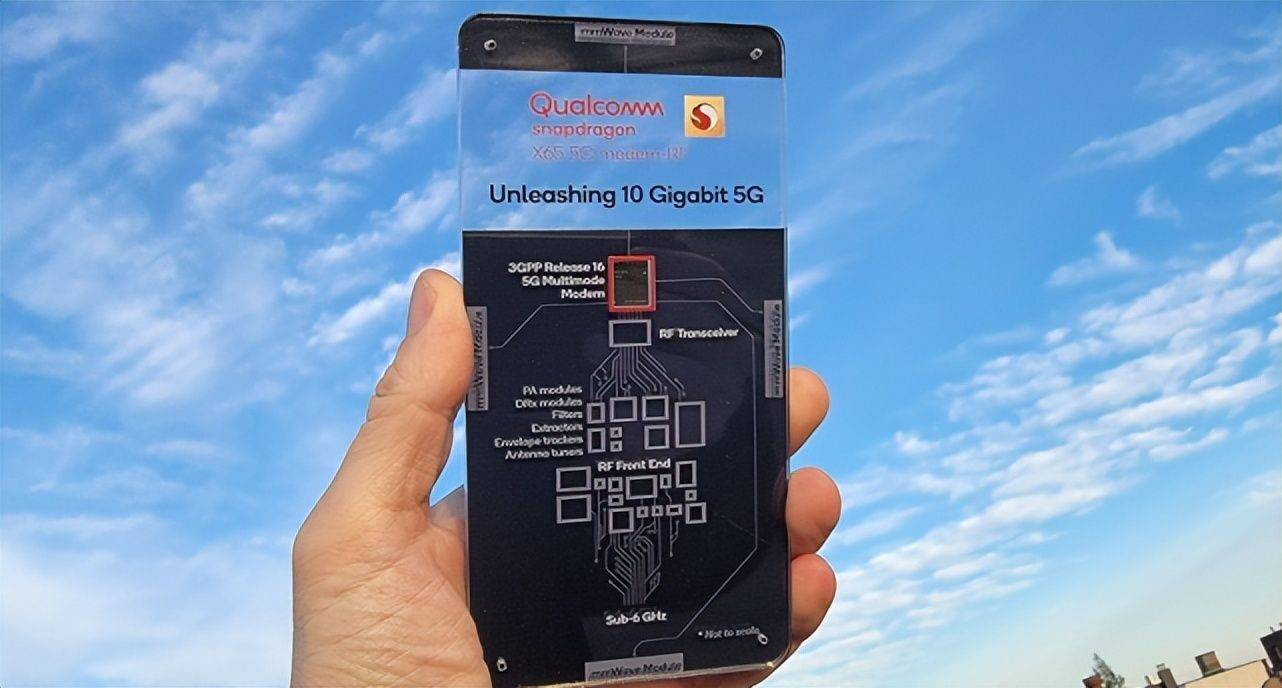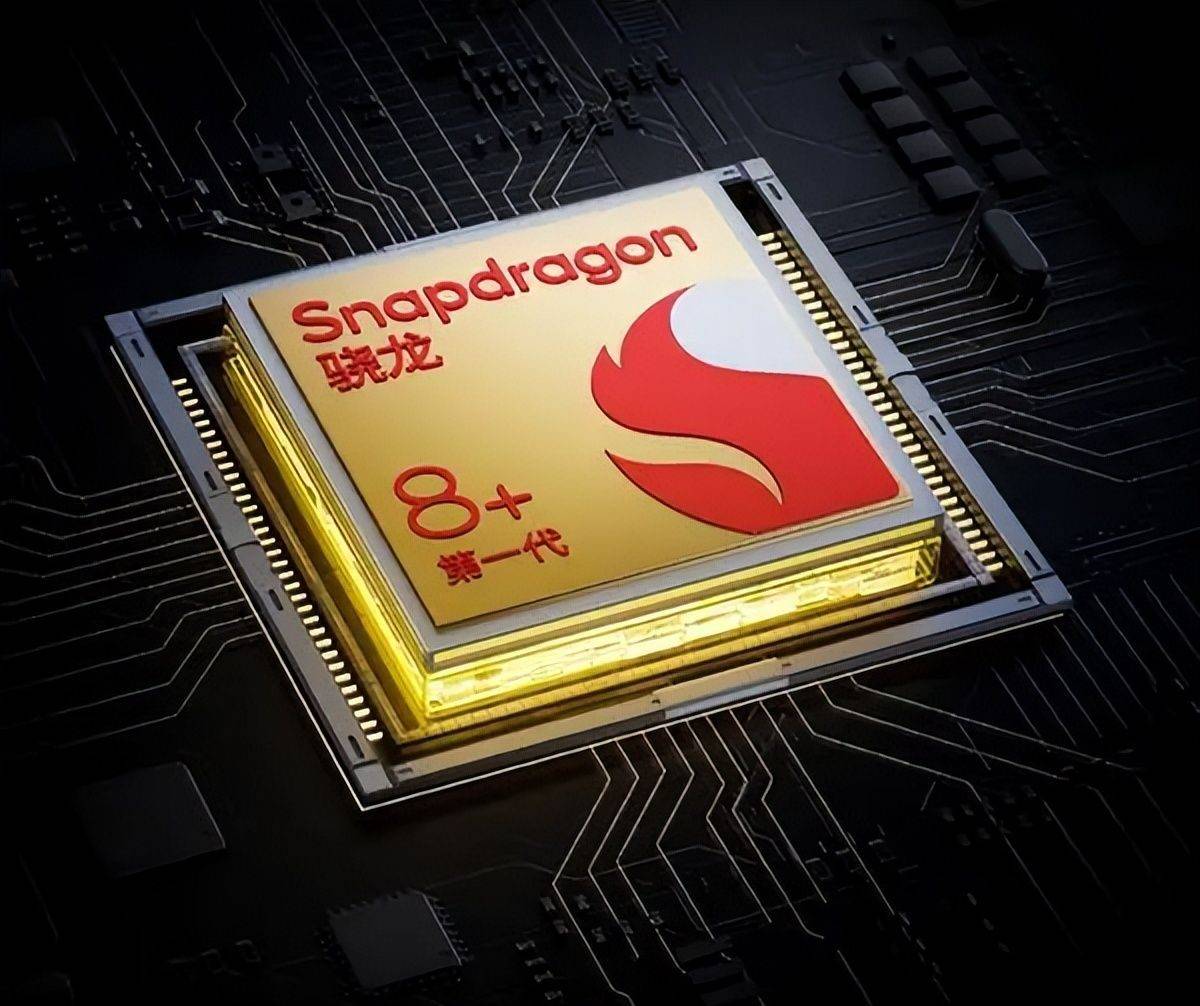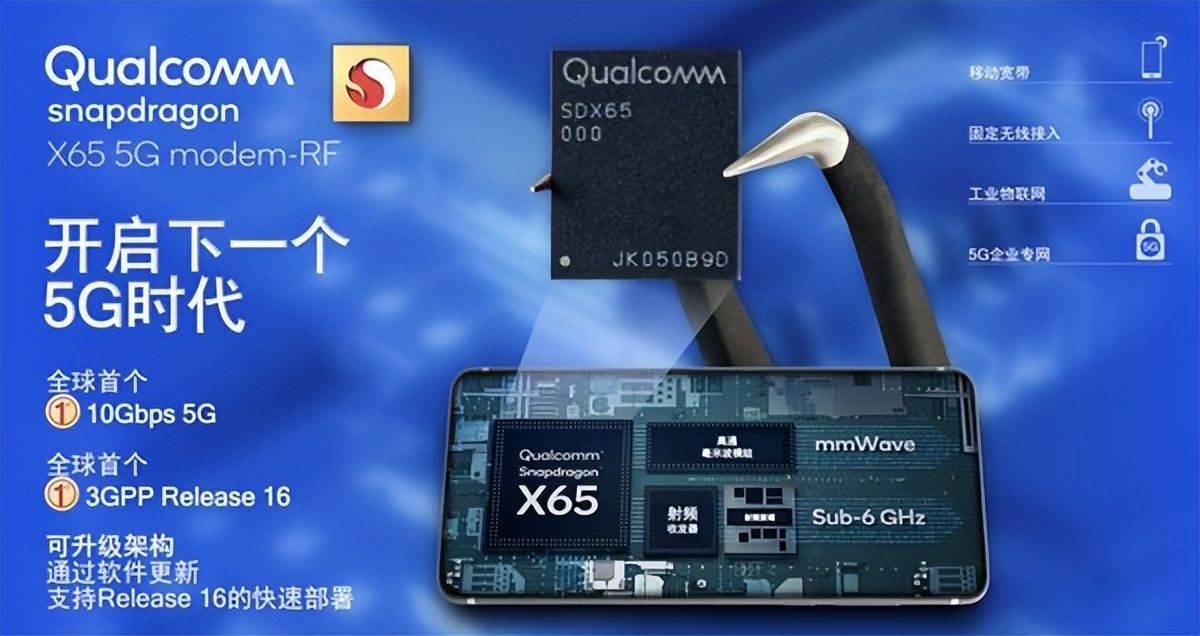 Technology peripherals
Technology peripherals
 AI
AI
 Qualcomm Snapdragon X70 5G commercial terminals are launched in large quantities, witnessing the miracle of connection empowered by AI
Qualcomm Snapdragon X70 5G commercial terminals are launched in large quantities, witnessing the miracle of connection empowered by AI
Qualcomm Snapdragon X70 5G commercial terminals are launched in large quantities, witnessing the miracle of connection empowered by AI
When it comes to the 5G modems commonly used in smartphones, everyone knows the Qualcomm Snapdragon series. In the global 5G baseband market, the Snapdragon X series baseband occupies nearly 2/3 of the market share. It is not only widely used in the Android camp, but also has a high reputation in the ISO field. The latest iPhone 14 and 15 series mobile phones have chosen Snapdragon X65 as their key component of the 5G baseband. This is also the fourth consecutive generation of Apple products to use Snapdragon's 5G baseband after the 12 series.

Snapdragon It is the most powerful 5G baseband already commercially available. It is the industry's first 5G connection product that complies with 3GPP Release 16 specifications, and accelerates 5G speed to the 10G era, with connection speeds up to 10Gbps.

Qualcomm released two high-end flagship mobile platforms, Snapdragon 8 Gen1 and Snapdragon 8 Gen1, last year, both of which integrate the Snapdragon X65 5G baseband. Many mobile phones equipped with Snapdragon 8 Gen1 series chips, such as vivo X80 series, OPPO Find X5 series, ROG 6, OnePlus 10T, Xiaomi 12S Ultra, IQOO 10 Pro, Motorola X30 Pro, etc., all rely on the Snapdragon X65 5G baseband Powerful functions bring users unimaginable 5G transmission rates. Thanks to the 5G upgrade architecture solution of Snapdragon X65, downstream mobile phone manufacturers can gain extremely high flexibility

Specifically, the upgrade architecture of Snapdragon X65 is to be able to perform software updates and optimizations in a timely manner, obtain more new features and functions, and play a broader, more powerful and irreplaceable role in 5G-related fields. In addition, Qualcomm also quickly deployed and applied the new features of 3GPP Release 16, allowing users to personally experience the extremely fast and smooth online experience brought by Qualcomm 5G solutions
It is worth mentioning that in 2023, terminals equipped with Snapdragon 8 Gen2 have been launched in large numbers. This flagship chip is equipped with the Snapdragon X70 5G modem and radio frequency system. Compared with the previous generation product Snapdragon X65, Snapdragon X70 has ushered in a comprehensive upgrade and optimization. The first 5G AI processor it applies has achieved breakthrough 5G performance and 10 gigabit 5G transmission capability in the 5G modem RF system. Incredible upload speeds, low latency, low coverage and high energy efficiency. In addition, Snapdragon X70 also provides global operators with great flexibility and maximized spectrum resources to achieve the best 5G solution.

However, the most eye-catching innovation of Qualcomm’s latest generation Snapdragon X70 5G baseband is the introduction of the 5G AI processor, which can use the powerful computing power and processing capabilities of Qualcomm’s AI engine to optimize 5G in the Sub-6GHz and millimeter wave frequency bands. links, in order to achieve speed increase, enhance network radiation range, ensure network stability, increase mobility, improve energy efficiency and effectively reduce latency.
Snapdragon X70 is Qualcomm’s unique 5G AI suite and optimization system with excellent leading features. It includes AI-based channel state feedback and optimization systems, AI-based millimeter wave beam management suites, AI-based network selection suites, and AI-based signal enhancement adaptive antenna tuning systems, etc., which are all manifestations of cutting-edge technology. It is worth mentioning that the Snapdragon X70 has also upgraded the application level of the 3GPP Release 16 specification to a higher level, improving overall performance by up to 60%

For the first time, people will experience the unparalleled connection strength of Snapdragon X70 on mobile terminals equipped with Snapdragon 8 Gen2, and jointly witness the 5G network empowered by AI to once again create the miracle of "connection"
The above is the detailed content of Qualcomm Snapdragon X70 5G commercial terminals are launched in large quantities, witnessing the miracle of connection empowered by AI. For more information, please follow other related articles on the PHP Chinese website!

Hot AI Tools

Undresser.AI Undress
AI-powered app for creating realistic nude photos

AI Clothes Remover
Online AI tool for removing clothes from photos.

Undress AI Tool
Undress images for free

Clothoff.io
AI clothes remover

Video Face Swap
Swap faces in any video effortlessly with our completely free AI face swap tool!

Hot Article

Hot Tools

Notepad++7.3.1
Easy-to-use and free code editor

SublimeText3 Chinese version
Chinese version, very easy to use

Zend Studio 13.0.1
Powerful PHP integrated development environment

Dreamweaver CS6
Visual web development tools

SublimeText3 Mac version
God-level code editing software (SublimeText3)

Hot Topics
 1386
1386
 52
52
 I Tried Vibe Coding with Cursor AI and It's Amazing!
Mar 20, 2025 pm 03:34 PM
I Tried Vibe Coding with Cursor AI and It's Amazing!
Mar 20, 2025 pm 03:34 PM
Vibe coding is reshaping the world of software development by letting us create applications using natural language instead of endless lines of code. Inspired by visionaries like Andrej Karpathy, this innovative approach lets dev
 Top 5 GenAI Launches of February 2025: GPT-4.5, Grok-3 & More!
Mar 22, 2025 am 10:58 AM
Top 5 GenAI Launches of February 2025: GPT-4.5, Grok-3 & More!
Mar 22, 2025 am 10:58 AM
February 2025 has been yet another game-changing month for generative AI, bringing us some of the most anticipated model upgrades and groundbreaking new features. From xAI’s Grok 3 and Anthropic’s Claude 3.7 Sonnet, to OpenAI’s G
 How to Use YOLO v12 for Object Detection?
Mar 22, 2025 am 11:07 AM
How to Use YOLO v12 for Object Detection?
Mar 22, 2025 am 11:07 AM
YOLO (You Only Look Once) has been a leading real-time object detection framework, with each iteration improving upon the previous versions. The latest version YOLO v12 introduces advancements that significantly enhance accuracy
 Best AI Art Generators (Free & Paid) for Creative Projects
Apr 02, 2025 pm 06:10 PM
Best AI Art Generators (Free & Paid) for Creative Projects
Apr 02, 2025 pm 06:10 PM
The article reviews top AI art generators, discussing their features, suitability for creative projects, and value. It highlights Midjourney as the best value for professionals and recommends DALL-E 2 for high-quality, customizable art.
 Is ChatGPT 4 O available?
Mar 28, 2025 pm 05:29 PM
Is ChatGPT 4 O available?
Mar 28, 2025 pm 05:29 PM
ChatGPT 4 is currently available and widely used, demonstrating significant improvements in understanding context and generating coherent responses compared to its predecessors like ChatGPT 3.5. Future developments may include more personalized interactions and real-time data processing capabilities, further enhancing its potential for various applications.
 Best AI Chatbots Compared (ChatGPT, Gemini, Claude & More)
Apr 02, 2025 pm 06:09 PM
Best AI Chatbots Compared (ChatGPT, Gemini, Claude & More)
Apr 02, 2025 pm 06:09 PM
The article compares top AI chatbots like ChatGPT, Gemini, and Claude, focusing on their unique features, customization options, and performance in natural language processing and reliability.
 How to Use Mistral OCR for Your Next RAG Model
Mar 21, 2025 am 11:11 AM
How to Use Mistral OCR for Your Next RAG Model
Mar 21, 2025 am 11:11 AM
Mistral OCR: Revolutionizing Retrieval-Augmented Generation with Multimodal Document Understanding Retrieval-Augmented Generation (RAG) systems have significantly advanced AI capabilities, enabling access to vast data stores for more informed respons
 Top AI Writing Assistants to Boost Your Content Creation
Apr 02, 2025 pm 06:11 PM
Top AI Writing Assistants to Boost Your Content Creation
Apr 02, 2025 pm 06:11 PM
The article discusses top AI writing assistants like Grammarly, Jasper, Copy.ai, Writesonic, and Rytr, focusing on their unique features for content creation. It argues that Jasper excels in SEO optimization, while AI tools help maintain tone consist



